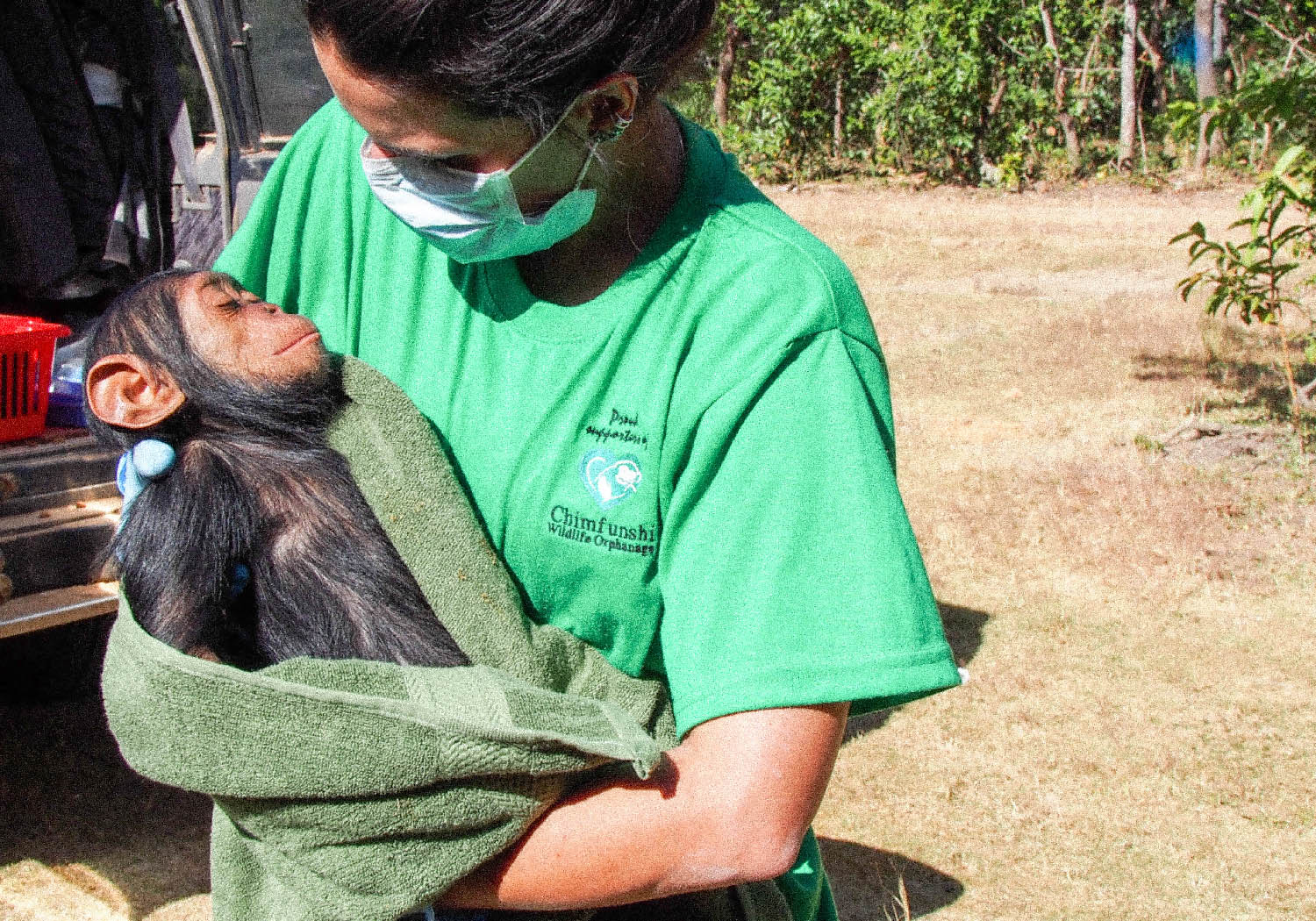Rescue & Care:
Providing a Safe Haven
The great apes and monkeys rescued by PASA members have seen terrible things. They need veterinary care and time to heal from traumatic experiences. Sanctuaries offer both.
Primate Rescues
Every year, PASA members rescue hundreds of animals from illegal wildlife trafficking, the pet trade, and unsafe situations.
Most primate rescues are done in partnership with law enforcement efforts to stop wildlife crime and end bushmeat hunting. PASA members provide a critical component in the fight against wildlife crime. With their deep relationships and knowledge of the community, they are a trusted partner. They also provide shelter and immediate care to confiscated animals.
Sanctuary teams are also called in to help with animals who are victims of road traffic accidents, powerline electrocutions, or attacks by farmers who see primates as threats to their crops.

Veterinarian at Chimfunshi Wildlife Orphanage, Thalita Calvi, carries a rescued chimpanzee.
Providing life-long care
When an ape or monkey comes to a PASA member, the team does a thorough assessment to determine the best course of treatment. Some animals are too traumatized or too badly injured to live in the wild again, so for them, the sanctuaries provide a life-long home.
Many of these species are listed as endangered or critically endangered, so their protection and ongoing care is a critical bulwark against extinction.
Alliance members together care for over 3,400 great apes and monkeys.
